Improving Decisions with Marketing Information Systems
1/46
There's no tags or description
Looks like no tags are added yet.
Name | Mastery | Learn | Test | Matching | Spaced |
|---|
No study sessions yet.
47 Terms
Marketing Information Systems
Systems that make information available and accessible for marketing strategy planning decisions.
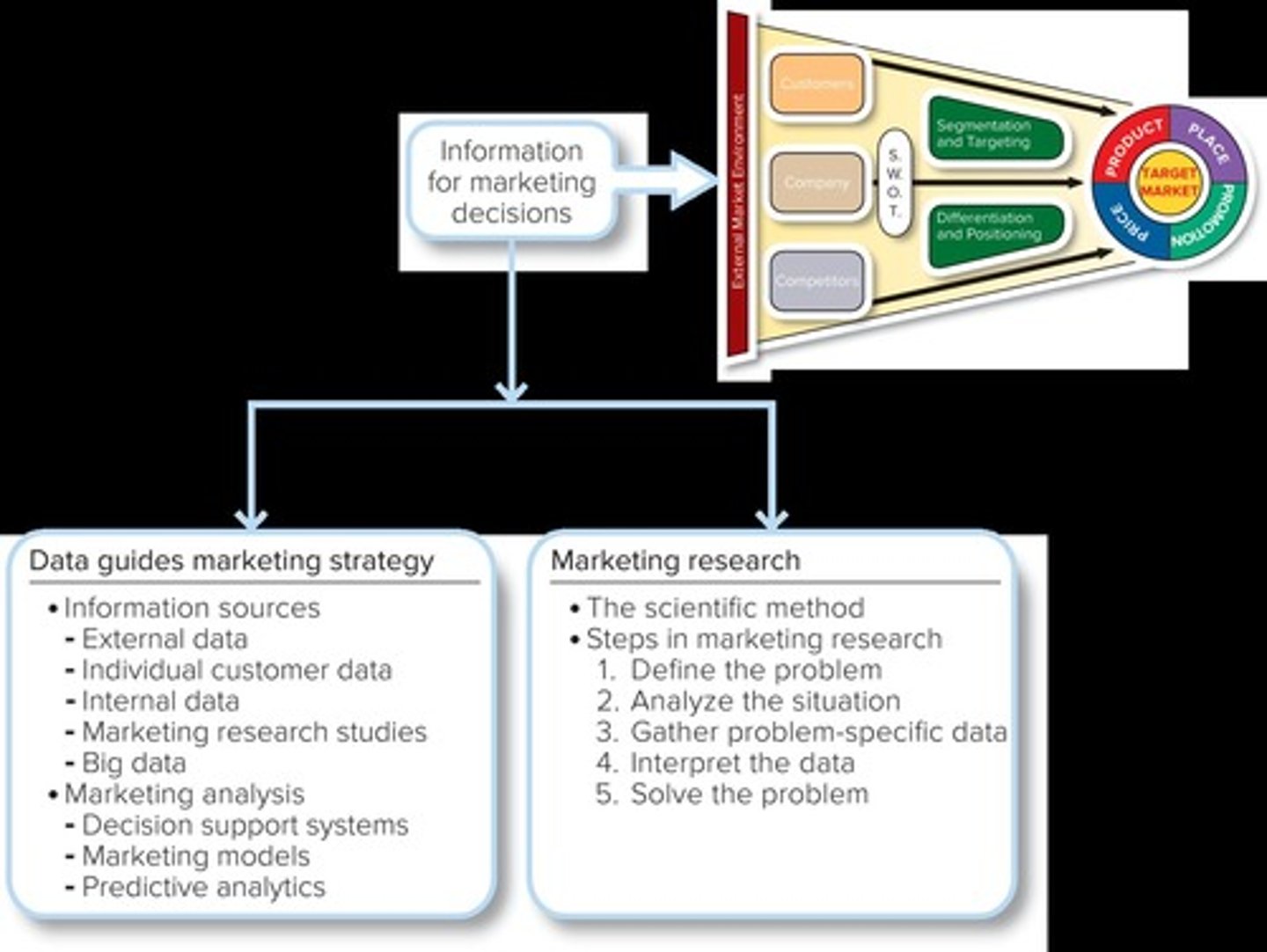
Big Data
Data characterized by complexity and variety.
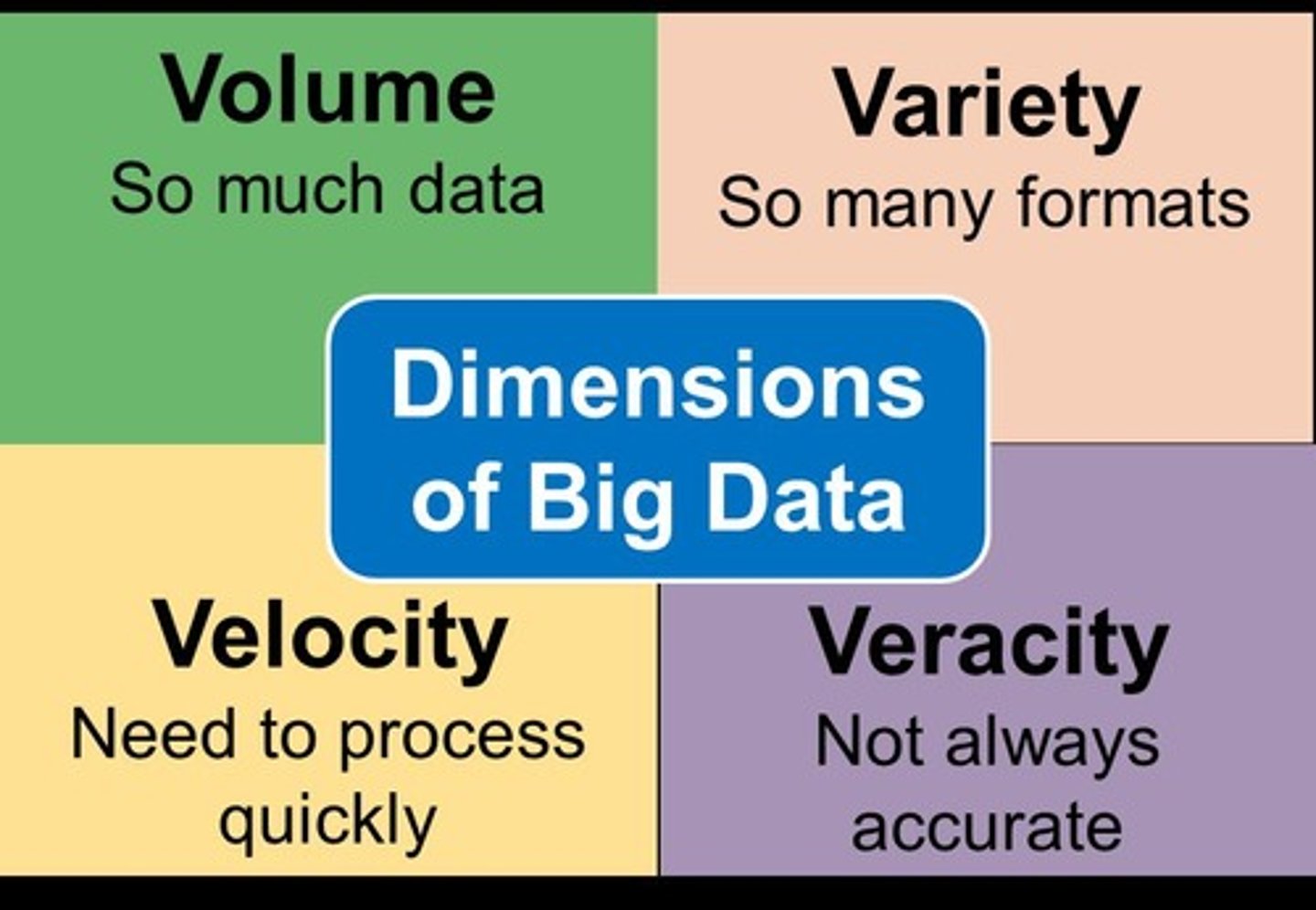
Decision Support Systems
Systems that aid managers in making decisions.
Five-Step Scientific Approach to Marketing Research Process
A structured method for conducting marketing research, including defining the problem, setting research objectives, analyzing the situation, gathering data, and interpreting results.
Defining the Problem—Step 1
The initial step in the marketing research process that involves pinpointing and identifying the problem.
Setting Research Objectives
The process of establishing specific goals for the marketing research.
Analyzing the Situation—Step 2
The step in the marketing research process that assesses existing information to educate the researcher.
Secondary Data
Information that has already been collected or published.
Primary Data
Information specifically collected to solve a current problem.
Focus Groups
A qualitative research method involving typically 6-10 people discussing a topic guided by a moderator.
Structured Questions
Questions designed to elicit more objective results in research.
Qualitative Research
Research that focuses on understanding concepts, thoughts, or experiences.
Quantitative Research
Research that focuses on quantifying data and generalizing results from a sample to the population.
Situation Analysis
A process that helps identify what information is already available regarding a marketing issue.
Gathering Problem-Specific Data—Step 3
The step in the marketing research process focused on collecting data that directly addresses the identified problem.
Interpreting Results
The process of making sense of the data collected during research.
Problems vs. Symptoms
Distinction between the actual issues that need to be addressed and the signs that indicate there is a problem.
Caution in Interpreting Results
The need for careful analysis when drawing conclusions from research data.
Marketing Dashboards
Tools used to monitor market conditions and performance.
Analysis Changes Data to Information, Knowledge, and Wisdom
A process where raw data is transformed into actionable insights through analysis.
Who? What? Where? When? How much? + Wisdom
Questions that guide the research process and lead to deeper understanding through experience.
marketing research
The process of gathering, analyzing, and interpreting information about a market.
marketing information system (MIS)
A system for managing marketing data and information to support decision-making.
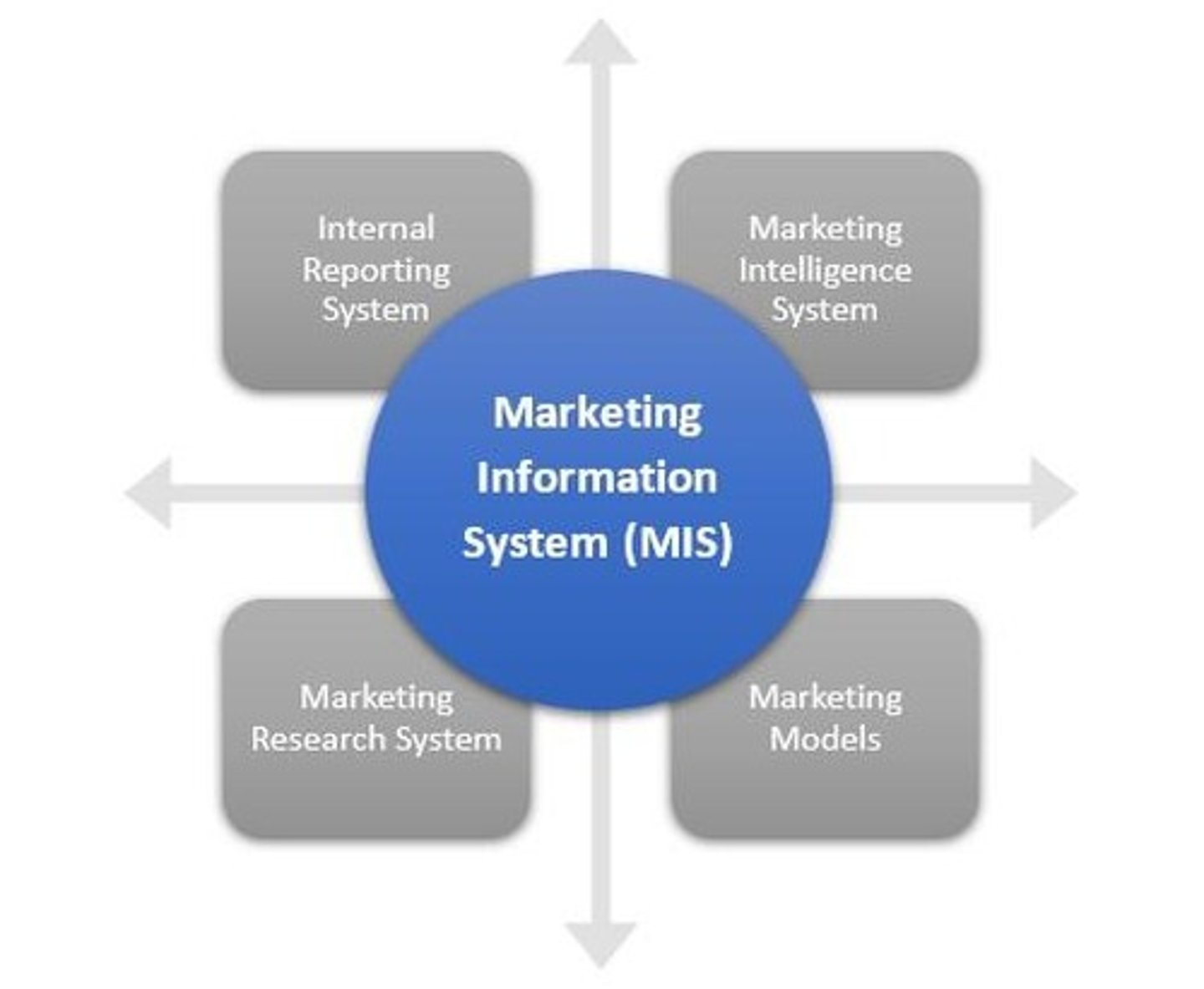
data warehouse
A centralized repository for storing and managing large volumes of data from multiple sources.
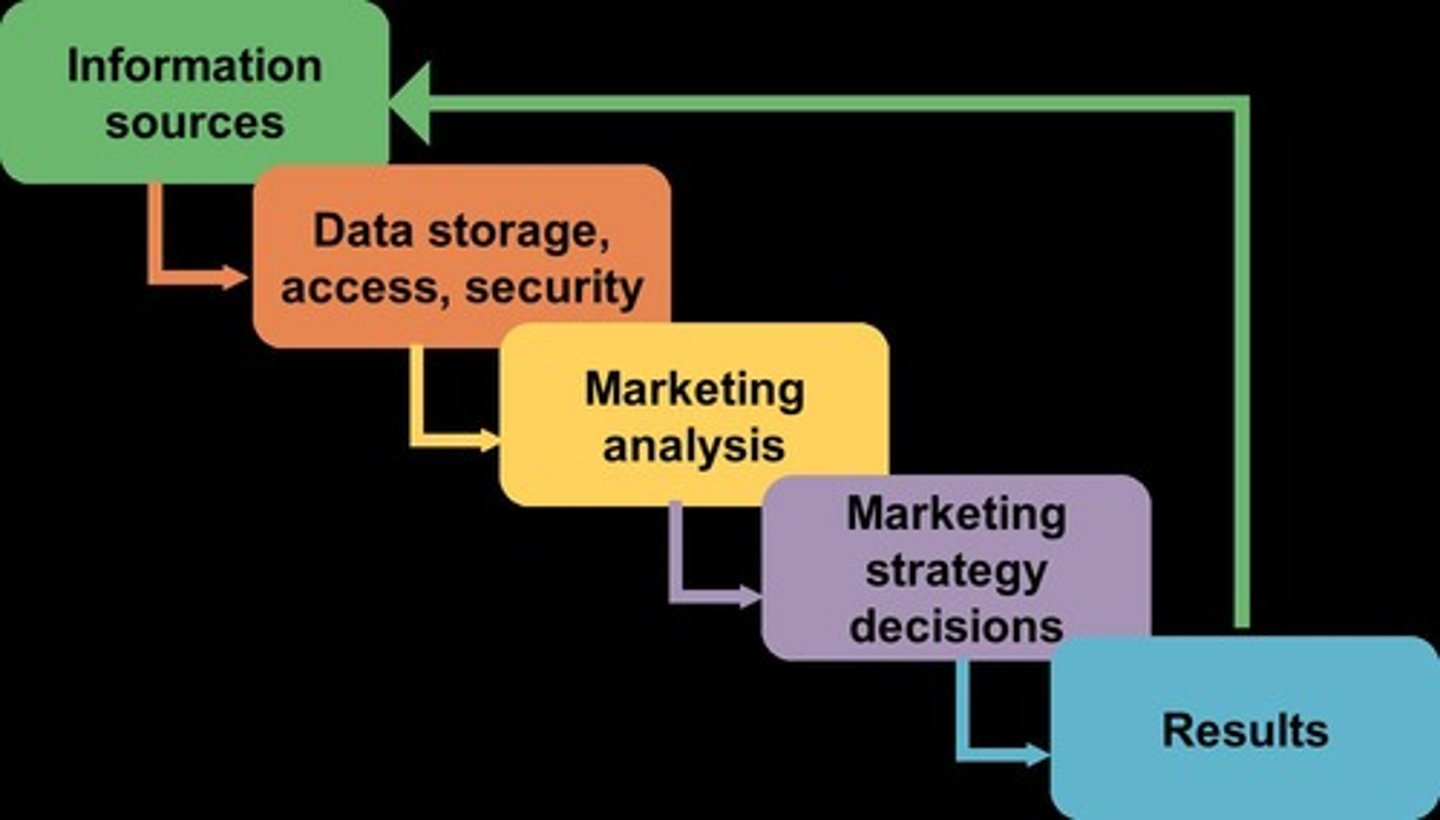
decision support system (DSS)
An information system that supports business or organizational decision-making activities.
marketing dashboard
A visual representation of key marketing metrics and performance indicators.
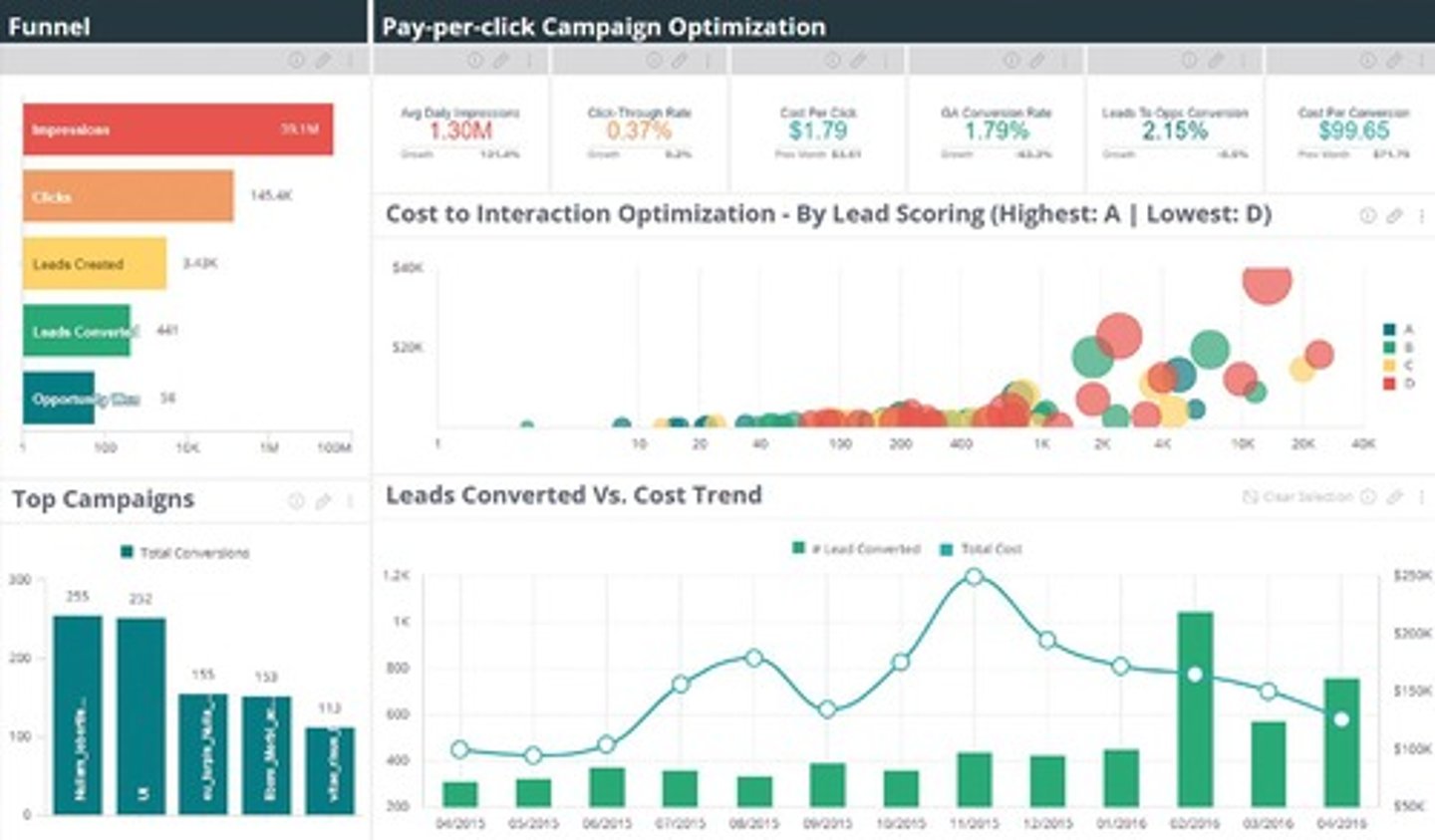
marketing model
A theoretical framework that describes the relationships between different marketing variables.
personal data
Information that relates to an identified or identifiable individual.
informational privacy
The right of individuals to control the collection and use of their personal information.
General Data Protection Regulation (GDPR)
A regulation in EU law on data protection and privacy for all individuals within the European Union.
scientific method
A systematic process for investigating phenomena, acquiring new knowledge, or correcting and integrating previous knowledge.
hypotheses
Proposed explanations for a phenomenon, which can be tested through research.
marketing research process
A series of steps that guide researchers in conducting marketing research.
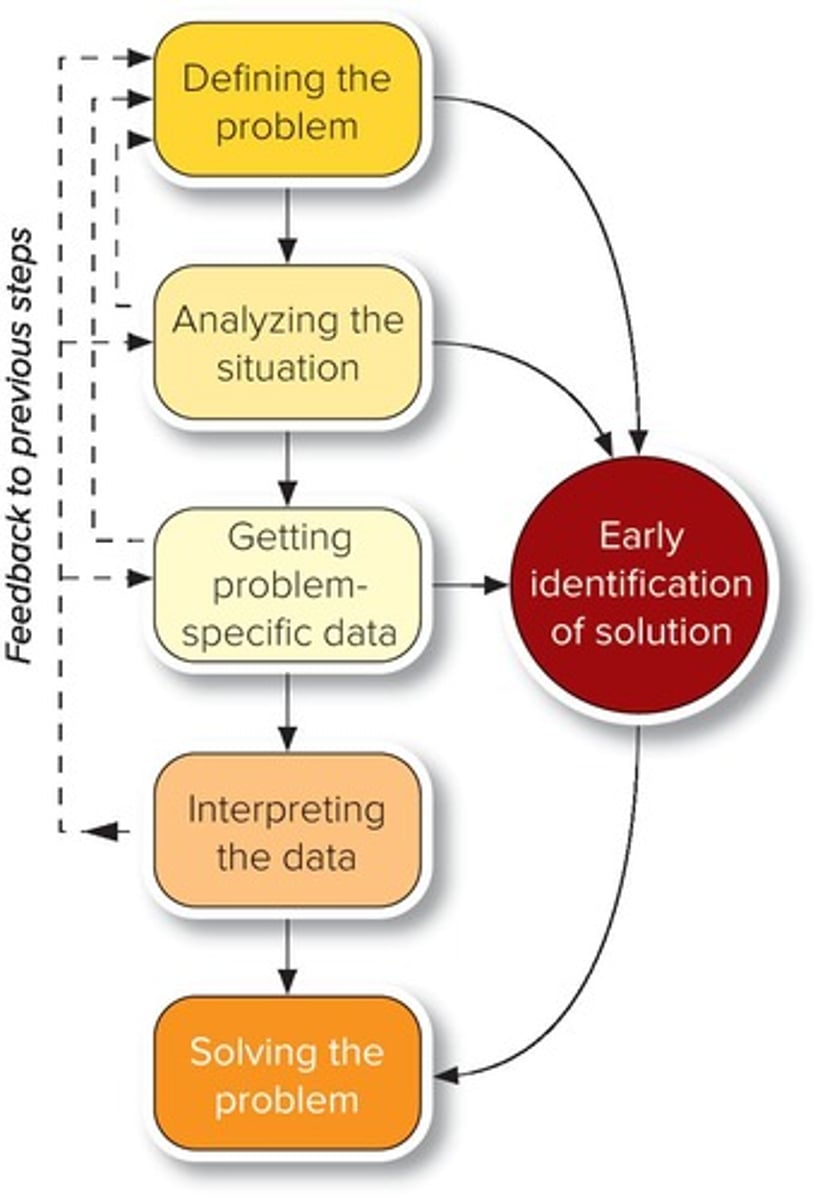
sentiment analysis
The use of natural language processing to analyze and determine the sentiment expressed in text data.
consumer panel
A group of selected consumers who provide feedback on products and services over time.
research proposal
A document outlining the plan for a research project, including objectives, methodology, and budget.
depth interview
A qualitative research method involving a one-on-one conversation to explore a participant's thoughts and feelings.
customer journey map
A visual representation of the steps a customer takes when interacting with a company.
focus group interview
A qualitative research method that gathers a small group of people to discuss a product or service.
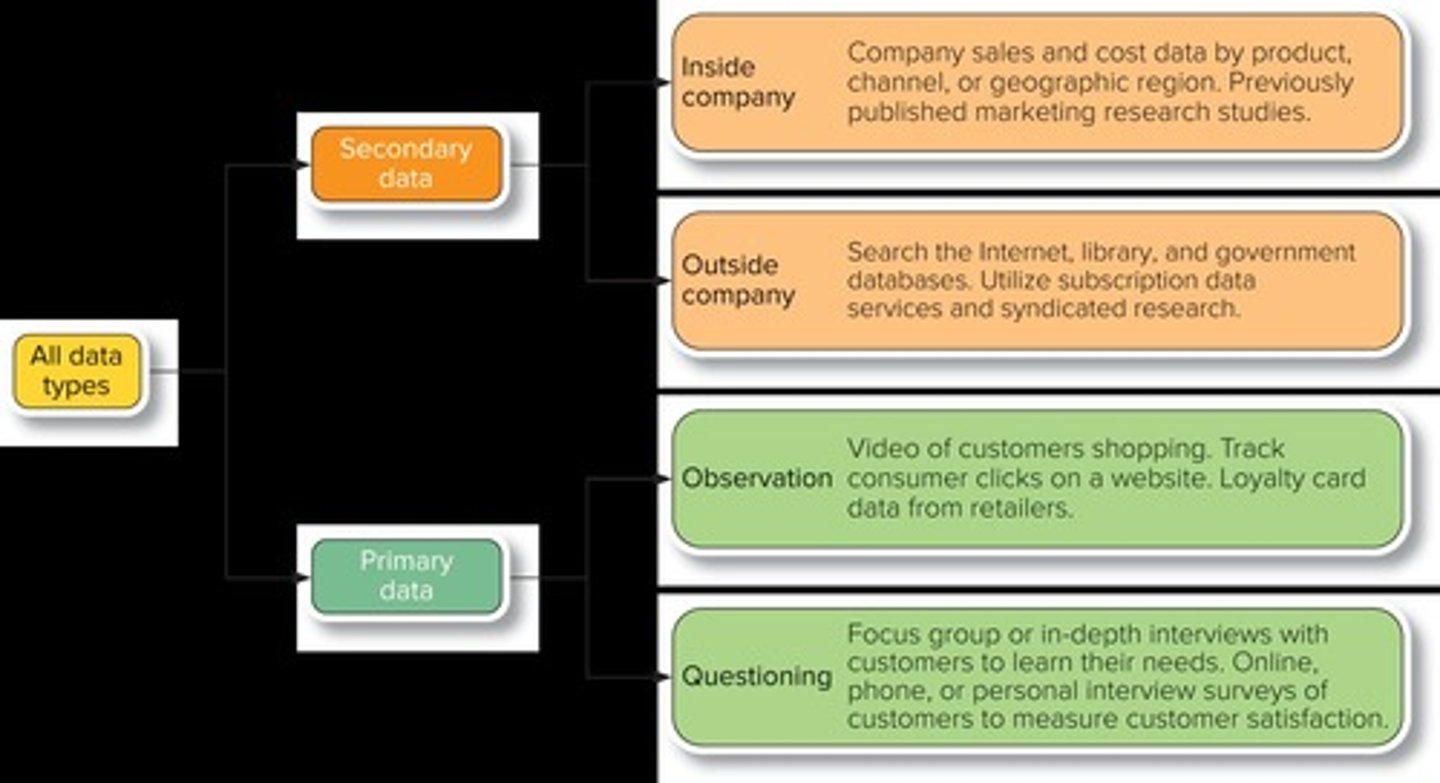
response rate
The percentage of people who respond to a survey out of the total number of people surveyed.
observation method
A research technique where the researcher observes subjects in their natural environment.
experimental method
A research method that tests hypotheses through controlled experiments.
statistical packages
Software tools used for statistical analysis of data.
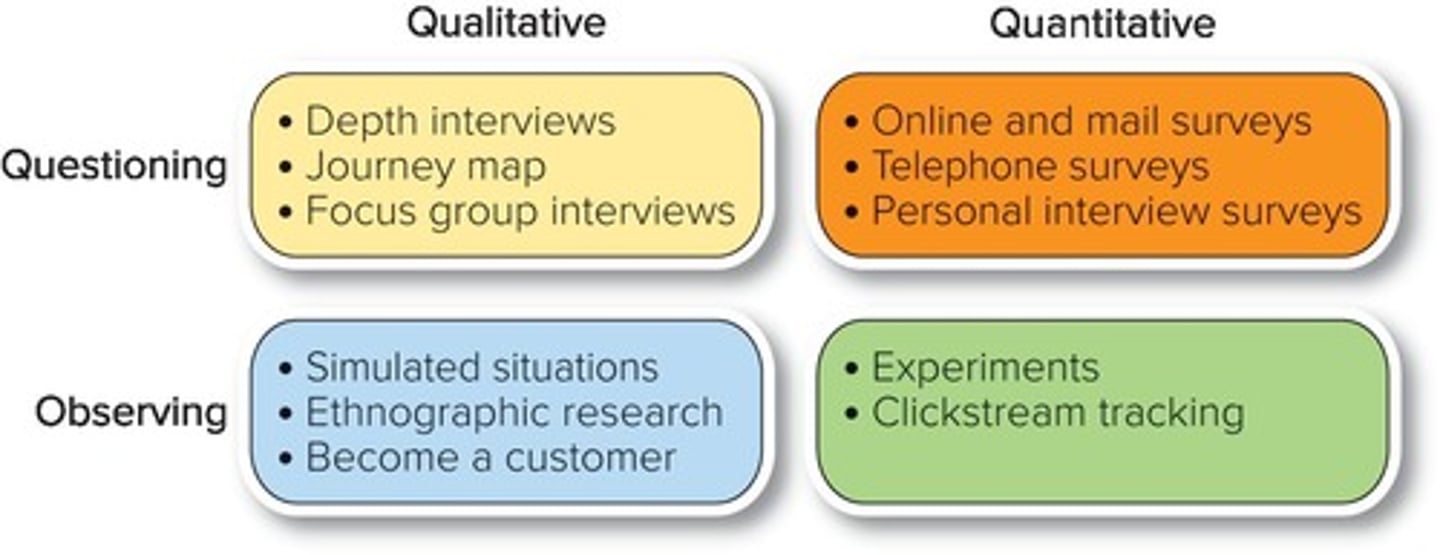
population
The entire group of individuals or instances about whom we hope to learn.
sample
A subset of the population selected for research purposes.
confidence interval
A range of values that is likely to contain the true population parameter with a specified level of confidence.
validity
The extent to which a test measures what it claims to measure.